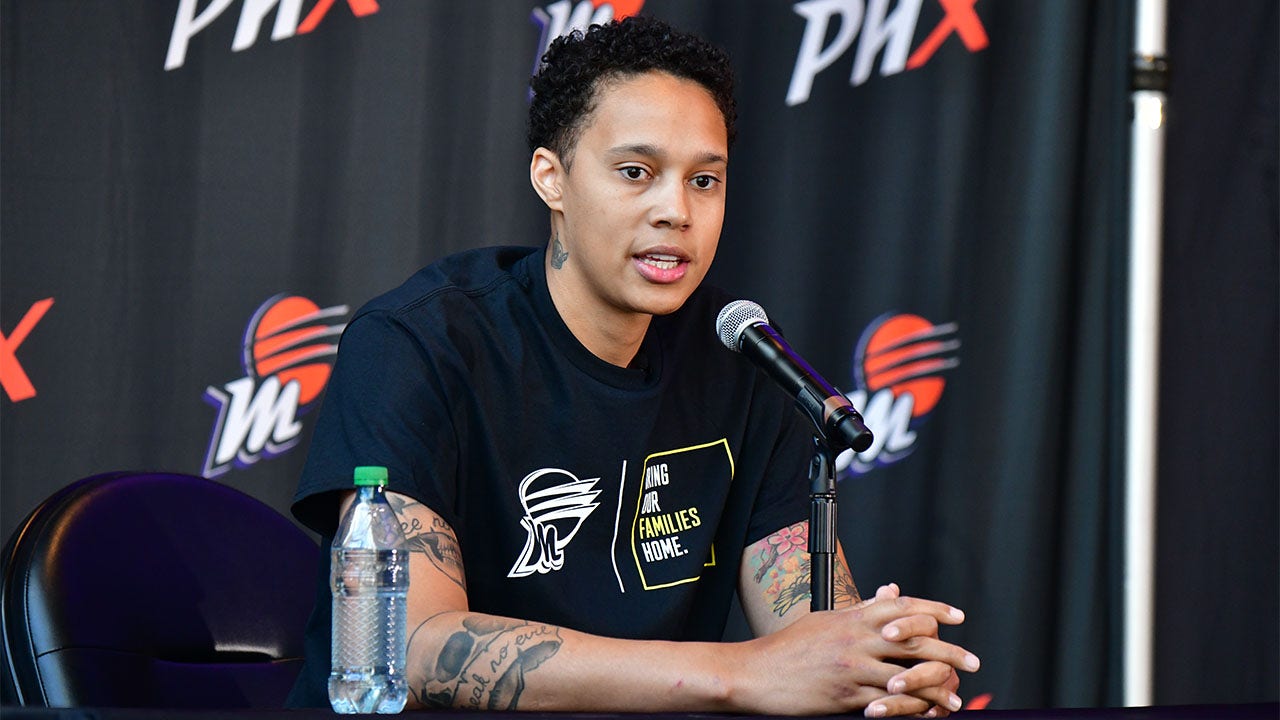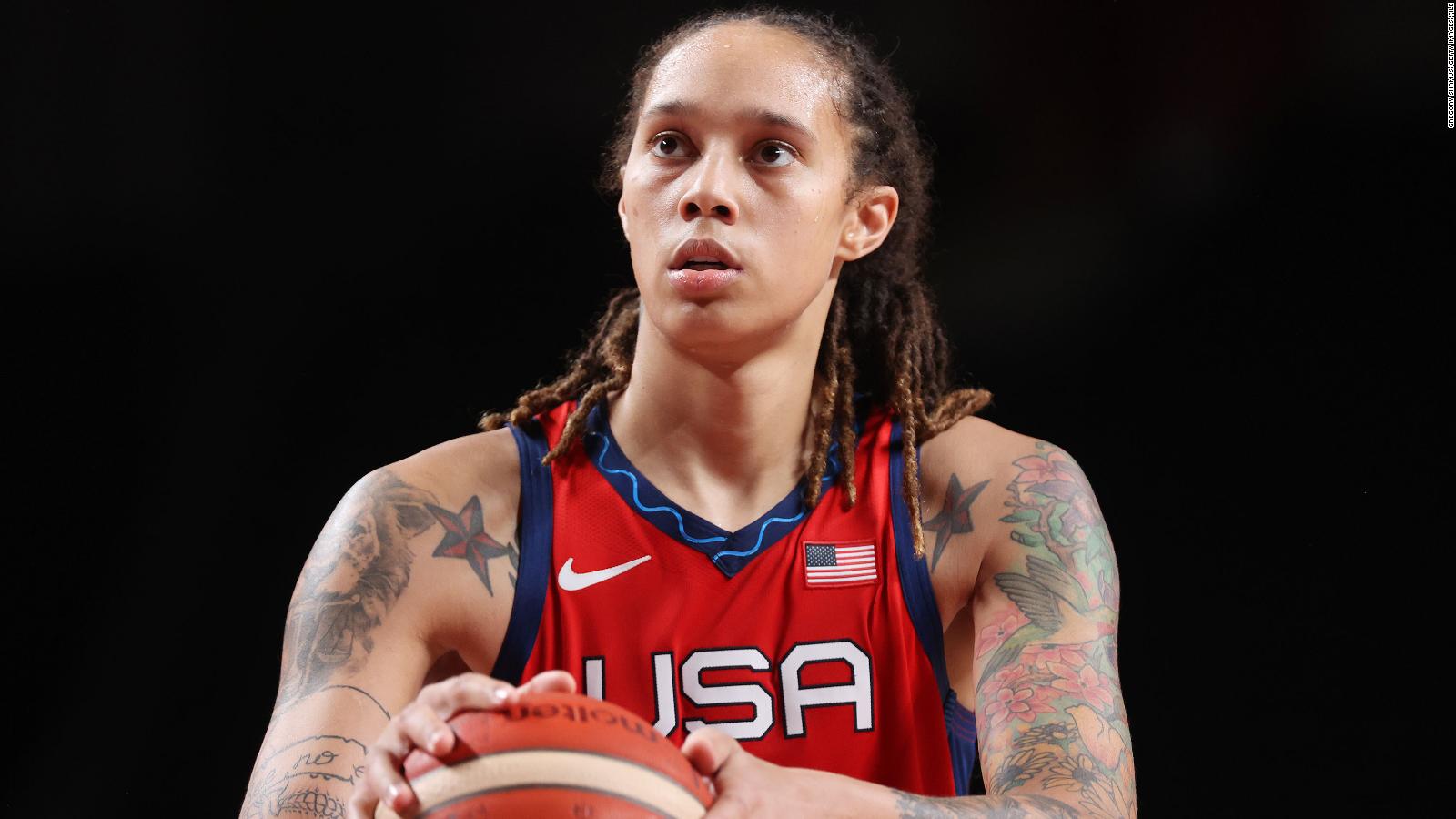Is Brittney Griner Transgender? Understanding Her Identity And Journey
In recent years, the topic of gender identity has gained significant attention, and many individuals are seeking to understand the nuances of this complex issue. One public figure who has been at the center of discussions surrounding gender identity is Brittney Griner. As a prominent athlete, her story raises important questions about identity, representation, and societal perceptions. This article aims to explore the question: Is Brittney Griner transgender? We will delve into her background, personal experiences, and how she identifies herself, providing clarity and insight into this important topic.
Brittney Griner, an exceptional basketball player and Olympic gold medalist, has made headlines not just for her incredible skills on the court but also for her openness about her identity. Her journey has inspired many and sparked conversations about LGBTQ+ representation in sports. Understanding Griner's identity is crucial not only for her fans but also for broader discussions about gender and representation in society.
In this comprehensive article, we will examine Brittney Griner’s life, her own words regarding her identity, and the societal implications of her story. By analyzing Griner's experiences, we hope to foster a better understanding of transgender issues and the importance of inclusivity in sports and beyond.
- Xqc Twitter Unveiling The Journey Of A Streaming Sensation
- Peter Mcmahons Children A Deep Dive Into Family Life
Table of Contents
- 1. Biography of Brittney Griner
- 2. Personal Life and Identity
- 3. Career Highlights
- 4. Brittney Griner's Identity
- 5. Understanding Transgender Issues
- 6. Representation in Sports
- 7. Support for LGBTQ+ Athletes
- 8. Conclusion
1. Biography of Brittney Griner
Brittney Griner was born on October 18, 1990, in Houston, Texas. She grew up in a close-knit family and showed an early interest in sports, particularly basketball. Griner attended Nimitz High School, where she gained recognition for her exceptional skills on the court, leading her team to a Texas state championship.
Personal Information
| Date of Birth | October 18, 1990 |
|---|---|
| Place of Birth | Houston, Texas, USA |
| Height | 6 ft 9 in (2.06 m) |
| Position | Center |
2. Personal Life and Identity
Brittney Griner has been open about her personal life, including her sexual orientation. She identifies as a lesbian and has spoken candidly about her experiences navigating her identity in a world that often imposes strict gender norms. Griner's openness has made her a role model for many young athletes who may be struggling with their own identities.
Despite the challenges she has faced, Griner's journey has been one of empowerment and acceptance. She married fellow athlete Cherelle Watson in 2020, further solidifying her commitment to living authentically. Griner's willingness to share her story has helped to break down barriers and foster understanding within the LGBTQ+ community and beyond.
- Park Eun Bin The Rising Star Of South Korean Entertainment
- Piddy Beat 0 To 100 The Rise Of A Music Phenomenon
3. Career Highlights
Griner's basketball career is nothing short of remarkable. She played college basketball at Baylor University, where she became a national sensation, leading the Lady Bears to a NCAA championship in 2012. Her impressive stats include:
- Three-time NCAA All-American
- Two-time NCAA Champion
- Olympic Gold Medalist in 2021
Griner's success on the court has earned her numerous accolades and recognition, solidifying her status as one of the greatest female basketball players of all time.
4. Brittney Griner's Identity
There has been speculation about Brittney Griner's gender identity, particularly regarding whether she identifies as transgender. However, Griner herself has clarified that she is not transgender; she identifies as a cisgender woman who is open about her sexual orientation as a lesbian. This distinction is important in understanding her identity and the broader conversations surrounding gender.
Griner's experiences highlight the need for society to recognize and respect individual identities without making assumptions. Her story serves as a reminder that everyone’s journey is unique, and understanding that journey is essential for fostering inclusivity and acceptance.
5. Understanding Transgender Issues
Transgender issues are often misunderstood, and it is essential to approach the topic with sensitivity and respect. Transgender individuals experience a wide range of challenges related to their identity, including discrimination, lack of representation, and mental health struggles.
Education and awareness are vital in addressing these issues. By fostering open dialogues about gender identity, society can work towards creating a more inclusive environment for everyone, regardless of their identity. This includes supporting policies that protect the rights of transgender individuals and promoting representation in all areas, including sports.
6. Representation in Sports
Representation matters, especially in sports, where athletes often serve as role models for younger generations. Brittney Griner's visibility as an openly lesbian athlete has paved the way for more LGBTQ+ representation in sports. This representation is crucial for creating safe spaces for athletes to express their identities without fear of discrimination.
As more athletes come out and share their stories, the landscape of sports is gradually changing. Organizations are beginning to implement policies that promote inclusivity and support for LGBTQ+ athletes, contributing to a more accepting environment across all levels of competition.
7. Support for LGBTQ+ Athletes
Supporting LGBTQ+ athletes involves a collective effort from the sports community, fans, and organizations. Here are some ways to provide support:
- Advocating for inclusive policies within sports organizations.
- Promoting awareness about LGBTQ+ issues in sports.
- Encouraging open dialogues about identity and representation.
- Supporting LGBTQ+ organizations that assist athletes and promote inclusivity.
By standing together, we can create an environment where all athletes feel valued and safe, regardless of their identity.
8. Conclusion
In conclusion, Brittney Griner's journey is a powerful testament to the importance of understanding and respecting individual identities. While she identifies as a cisgender woman and is openly lesbian, her experiences shed light on the broader issues surrounding gender identity and representation in sports. It is essential to foster conversations about these topics and to support policies that promote inclusivity and acceptance for all individuals, regardless of their identity.
We encourage readers to engage with this topic further, share their thoughts in the comments, and explore other articles that promote understanding and inclusivity in our society. Together, we can make a difference and create a more accepting world for everyone.
Thank you for taking the time to read this article. We hope to see you back here for more insightful discussions and explorations of important topics.
- Nathan Fillion A Comprehensive Look At The Life And Career Of The Beloved Actor
- Good Morning Memes For Him Start His Day With A Smile

Brittney Griner backs transgender participation in sports ‘A crime' to

Blinken speaks with Brittney Griner's wife as WNBA star's imprisonment

Riley Gaines calls Brittney Griner's remarks on transgender athlete